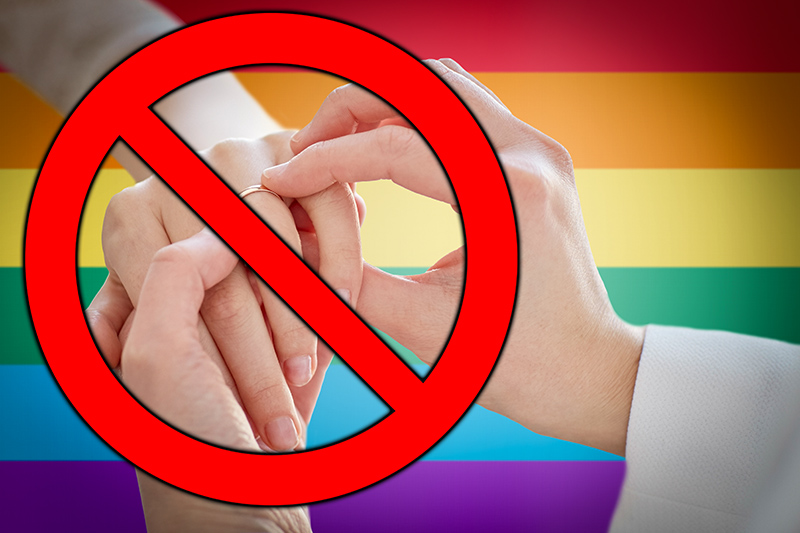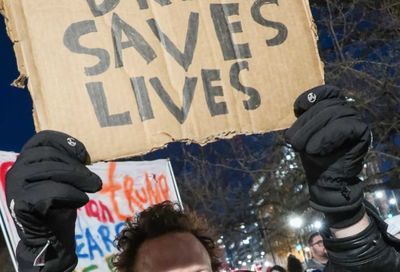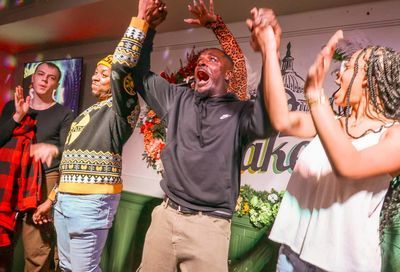Dutch Supreme Court Allows Gay Marriage in Aruba and Curaçao
The Dutch Supreme Court upheld a lower court ruling allowing same-sex couples to marry in Aruba and Curaçao legally.

The Supreme Court of the Netherlands ruled that Aruba and Curaçao must allow same-sex couples to marry, overturning an existing prohibition on the practice in those constituent countries.
Same-sex couples have been able to wed in the Netherlands since 2001, and since 2012 in Bonaire, St. Eustatius, and Saba, three Caribbean municipalities under Dutch control.
But the practice was prohibited in Aruba, Curaçao, Sint Maarten — three constituent countries of the Netherlands — although they were required to recognize the validity of same-sex marriages performed in the other jurisdictions. Aruba also approved a registered partnership law for same-sex couples in 2021.
LGBTQ activists with the Fundacion Orguyo Aruba foundation in Aruba and the Human Rights Caribbean foundation in Curaçao challenged the existing prohibition on marriage equality in 2020. In December 2022, the joint Court of Justice of Aruba, Curaçao, Sint Maarten, and of Bonaire, Sint Eustatius and Saba ruled that same-sex marriages are legal in the two countries.
The governments of Aruba and Curaçao subsequently appealed, resulting in the Court of Justice ruling that not permitting same-sex marriages was inconsistent with state regulations and the country’s ban on discrimination based on sexual orientation. That ruling was upheld by the Dutch Supreme Court last week.
Egmar Irausquin, the secretary of Fundaction, called the ruling a “big step, the start of equality” for LGBTQ people in the island country.
Irausquin told the NL Times that he had not expected same-sex marriages to be permitted so soon. “I was thinking of 2030 because the Supreme Court may take a little longer about it or because we had to take new steps,” he said.
The lifting of the ban on same-sex marriage took effect immediately, though it remains to be seen how many people will take advantage of this new freedom in its first full week.
Human Rights Caribbean released a statement celebrating the Dutch Supreme Court decision as a “historic victory for the dignity and rights of LGBT people in Curaçao and Aruba” and a “crucial milestone” in the organization’s four-year fight for equality under the law.
“After a long and intense legal battle of four years, we can finally close this chapter,” the organization wrote in a Facebook post thanking members of the legal team that challenged the prohibition on same-sex marriages and various civic groups.
The organization also noted that the decision only implicated civil marriages. Religious groups and churches can still set their own internal practices or requirements for marriage.
“Congratulations to the lesbian couple who bravely started this legal procedure with us. They can now finally say yes to each other,” Human Rights Caribbean said. “This [ruling] opens the door to a future in which love and commitment between same-sex people are fully recognized and celebrated. It provides hope and certainty for future generations that equality and dignity will be respected.”
Support Metro Weekly’s Journalism
These are challenging times for news organizations. And yet it’s crucial we stay active and provide vital resources and information to both our local readers and the world. So won’t you please take a moment and consider supporting Metro Weekly with a membership? For as little as $5 a month, you can help ensure Metro Weekly magazine and MetroWeekly.com remain free, viable resources as we provide the best, most diverse, culturally-resonant LGBTQ coverage in both the D.C. region and around the world. Memberships come with exclusive perks and discounts, your own personal digital delivery of each week’s magazine (and an archive), access to our Member's Lounge when it launches this fall, and exclusive members-only items like Metro Weekly Membership Mugs and Tote Bags! Check out all our membership levels here and please join us today!























You must be logged in to post a comment.